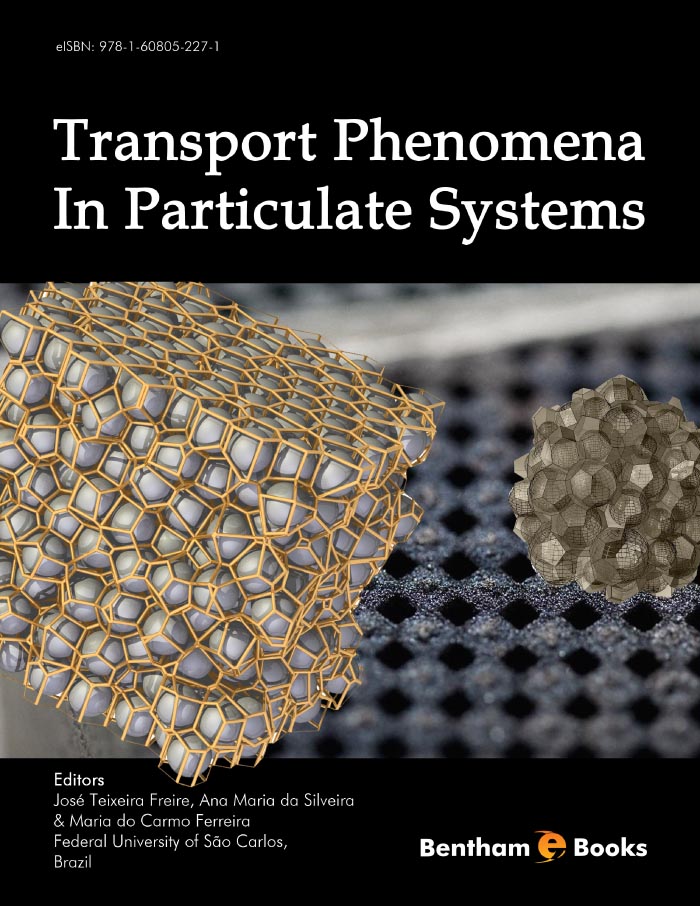Foreword
Particulate Systems is well recognized as one of the most important research fields in Brazil and in the world, permeating several branches of knowledge such as Chemical, Food and Agricultural Engineering, Pharmaceutical and Materials Science among others. A widespread growth and acceptance of Particulate Systems science and technology has been taking place in the world for a very long time and until now, challenges in design, process development, operation, and manufacturing of these systems still exist. Particulate Systems scientific community in Brazil has a well-established forum for presenting and publishing their works since 1973, the Brazilian Congress of Particulate Systems, whose proceedings of complete manuscripts are a valuable legacy to researchers, teachers and other professionals acting in Particulate Systems. In the world scene, Particulate Systems are no less important and its relevance is demonstrated by the list of scientific events and journals of high impact and quality, and also by the numerous books already published in this field.
Developments in Particulate Systems in process control, new techniques of modeling and simulation and nano- and biotechnologies are examples of what have occurred during the last decade and propose solutions for overcoming present and future trends. Apart from the above-cited themes, future trends also involve process and product developments of biodegradable plastics, environmental engineering and petroleum engineering (actually stimulated by the pre-salt exploitation). Progress in Particulate Systems has been expressive in a general way in the last decades, and concerning Brazil, it is verified that this field plays a fundamental role for the scientific and technological development in all Brazilian states.
An expressive contribution for the development of Particulate Systems in Brazil is attributed to the Chemical Engineering Department of Federal University of São Carlos – UFSCar – for its involvement in human resources qualification and for the dissemination of scientific and technological results in international conferences and journals. Specially, the contribution of Prof. José Teixeira Freire for the development of Particulate Systems science and technology is inestimable and editing this e-book yet enlarges this contribution. The book is the result of participation of experts in Particulate Systems working and post graduated at the Chemical Engineering Department of UFSCar, who are today renowned scientists in the international scene. These scientists give, in the chapters of this book, their contribution and their critical view of the actual research in Particulate Systems in Brazil.
This book, edited by Prof. José Teixeira Freire, Dr. Ana Maria da Silveira and Dr. Maria do Carmo Ferreira brings an overview of current and innovative aspects of Particulate Systems, including fundamentals and applications of special relevance. Two main themes can be visualized in the book content: drying and spouted beds, which highlights the strong effort of topical Brazilian research dedicated to these subjects. Drying of spherical gel systems, drying in continuous spouted beds, control of drying process in spouted beds and drying of pharmaceutical products are the topics on drying focused in the book. Other topics of Particulate Systems covered in the chapters are: experimental aspects and modeling of heat transfer in packed beds, application of CFD for spouted bed fluidynamics description, fluidization of low sphericity particles, hydrodynamics of biological fluidized bed reactors for effluent treatment and metal removal from industrial effluents using porous electrodes. The diversity of themes and applications shows the broad research field discussed in this work. As a relevant research source, this book brings important tools to investigators interested in the latest advances in Particulate Systems and offers critical perspectives for the development of this field from now on.
Prof. Sandra Cristina dos Santos Rocha
Chemical Engineering School
State University of Campinas
Campinas - SP
Brazil

